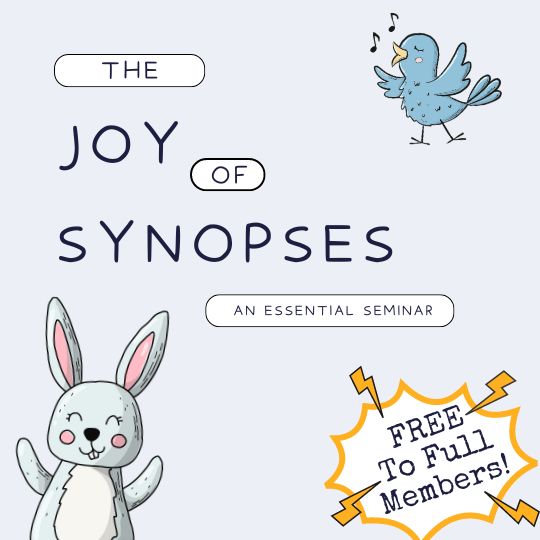Paul Whybrow
Full Member
As soon as a writer is asked who their influences are, the question raises the possibility that they're trying to write like their literary heroes. Smart-arse critics search for similarities and make disparaging remarks, seeking to define who the new author resembles. We've all seen the promotional hooey on book covers, stuff like, "Move over Lee Child, a new tough guy's in town."
Deciding who influenced you to become a writer is a thorny proposition. George Seferis, a writer, diplomat and Nobel laureate declared:
Don't ask who's influenced me. A lion is made up of the lambs he's digested, and I've been reading all of my life.
Inevitably, writers are readers first, and their enjoyment of stories, sparks inspiration within them to write their own tales. And there's another factor, whose influence cannot be understated, the motivation to write your own work can come from being disappointed by reading substandard writing, that somehow got published. The thought goes through your head, "I could do better than that!"
I returned to creative writing in the summer of 2013, after a long period of depression, which was broken by ideas for stories oozing out of my mind while I slept and in my waking hours. These came to me unbidden, and I was propelled into doing something about making them real by reading two flawed novels. One was that bad I threw the book at the wall (the dent is still in the plaster), while the other, written by one of my favourite authors, was so weak that I wondered at her state of mind. I later found out that she was coming out of her own struggles with the black dog, which explained a lot.
My early love of storytelling came from such authors as Kenneth Grahame (The Wind in the Willows), John Steinbeck, J.B. Priestley and the short stories of Guy de Maupassant. More recently, I've admired the writing technique of Alice Hoffmann, Barbara Kingsolver, Annie Dillard, John Irving and Justin Cartwright. I've recently discovered the novels of Richard Flanagan, and am currently reading his The Narrow Road To The Deep North, which won the Man Booker Prize in 2014. In my chosen writing genre of crime, Jo Nesbo, John Connolly, Michael Connelly, James Lee Burke, Henning Mankell and Dennis Lehane continue to enthral me.
What these authors share, is that they have a fluidity of style that eases the reader into an intriguing plot. They pose questions about the state of society and the dilemmas faced by their characters, and they let the reader into the thought processes of their protagonists and antagonists—which makes one empathise with their plight, even if what they're doing is foolish or reprehensible. My favourite authors also root their characters in the landscape, be it country or city, showing their relationship with it.
I like these things to appear in the novels I read, thus I put them into the novels I write. I think that such elements create a realistic world, that's more three dimensional and believable than some of the shallower descriptions and characterisation that appear in best-selling books. In this way, I'm a steaming idiot!
So, these authors are my influences. I attempt to remember the lessons they taught me about storytelling, without copying them. At least, that's what I think I do...for all I know, I might have lifted plots from long-forgotten Enid Blyton Famous Five stories and Edgar Rice Burroughs' Tarzan of the Apes escapades!
Which authors captivated you as a child?
Who do you admire as an adult reader?
Are there any famous writers who you would be happy to be compared to, by some publicist on the cover of your new book?

Deciding who influenced you to become a writer is a thorny proposition. George Seferis, a writer, diplomat and Nobel laureate declared:
Don't ask who's influenced me. A lion is made up of the lambs he's digested, and I've been reading all of my life.
Inevitably, writers are readers first, and their enjoyment of stories, sparks inspiration within them to write their own tales. And there's another factor, whose influence cannot be understated, the motivation to write your own work can come from being disappointed by reading substandard writing, that somehow got published. The thought goes through your head, "I could do better than that!"
I returned to creative writing in the summer of 2013, after a long period of depression, which was broken by ideas for stories oozing out of my mind while I slept and in my waking hours. These came to me unbidden, and I was propelled into doing something about making them real by reading two flawed novels. One was that bad I threw the book at the wall (the dent is still in the plaster), while the other, written by one of my favourite authors, was so weak that I wondered at her state of mind. I later found out that she was coming out of her own struggles with the black dog, which explained a lot.
My early love of storytelling came from such authors as Kenneth Grahame (The Wind in the Willows), John Steinbeck, J.B. Priestley and the short stories of Guy de Maupassant. More recently, I've admired the writing technique of Alice Hoffmann, Barbara Kingsolver, Annie Dillard, John Irving and Justin Cartwright. I've recently discovered the novels of Richard Flanagan, and am currently reading his The Narrow Road To The Deep North, which won the Man Booker Prize in 2014. In my chosen writing genre of crime, Jo Nesbo, John Connolly, Michael Connelly, James Lee Burke, Henning Mankell and Dennis Lehane continue to enthral me.
What these authors share, is that they have a fluidity of style that eases the reader into an intriguing plot. They pose questions about the state of society and the dilemmas faced by their characters, and they let the reader into the thought processes of their protagonists and antagonists—which makes one empathise with their plight, even if what they're doing is foolish or reprehensible. My favourite authors also root their characters in the landscape, be it country or city, showing their relationship with it.
I like these things to appear in the novels I read, thus I put them into the novels I write. I think that such elements create a realistic world, that's more three dimensional and believable than some of the shallower descriptions and characterisation that appear in best-selling books. In this way, I'm a steaming idiot!
So, these authors are my influences. I attempt to remember the lessons they taught me about storytelling, without copying them. At least, that's what I think I do...for all I know, I might have lifted plots from long-forgotten Enid Blyton Famous Five stories and Edgar Rice Burroughs' Tarzan of the Apes escapades!
Which authors captivated you as a child?
Who do you admire as an adult reader?
Are there any famous writers who you would be happy to be compared to, by some publicist on the cover of your new book?





